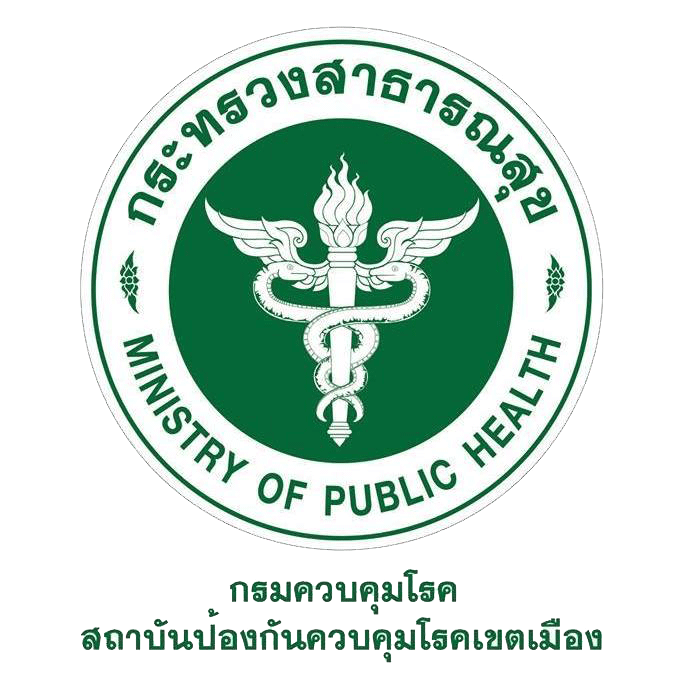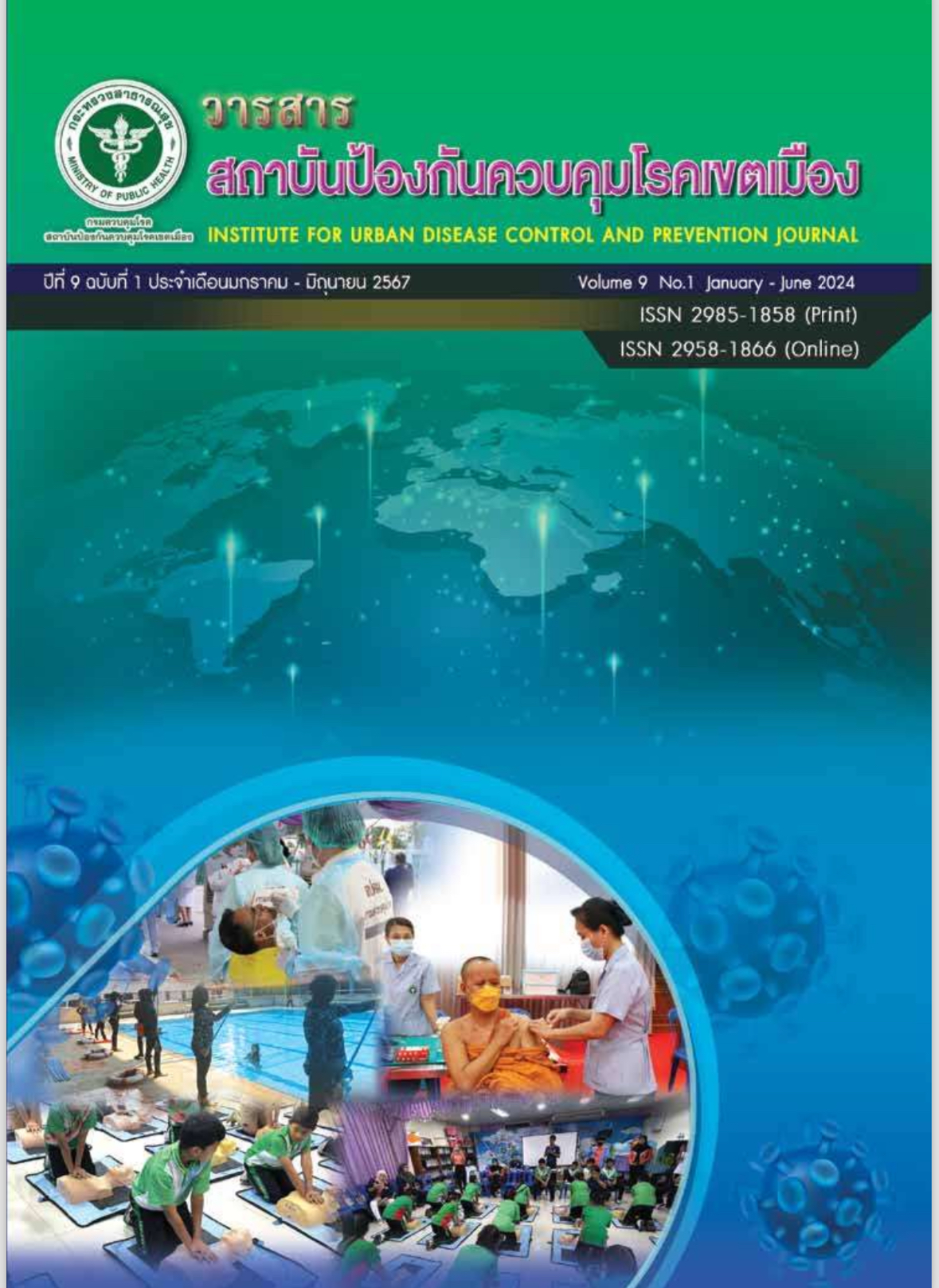ปัญญาประดิษฐ์มีศักยภาพที่จะเอาชนะความท้าทายในการวินิจฉัยโรคติดเชื้อ
Main Article Content
บทคัดย่อ
โรคติดเชื้อมีความเสี่ยงต่อสุขภาพของประชากรทั่วโลกและเครื่องมือวินิจฉัยเป็นสิ่งสําคัญในการตรวจหาการติดเชื้อ การเข้าถึงวิธีการตรวจเชื้อมาตรฐานโดยเฉพาะอย่างยิ่งในโรงพยาบาลที่อยู่ห่างไกลและไม่มีความพร้อมทางด้านเครื่องมือเป็นเรื่องยาก ดังนั้นการตรวจเชื้อ ณ จุดดูแลผู้ป่วยจึงมีประสิทธิภาพ แม้ว่าการอ่านผลตรวจจะมีแนวโน้มที่จะไม่ถูกต้องและเสี่ยงต่ออคติ ดังนั้นจุดมุ่งหมายของบทความปริทัศน์นี้คือเพื่อแสดงให้เห็นถึงความสําคัญของการใช้ปัญญาประดิษฐ์ (Artificial Intelligence; AI) เพื่อช่วยในการวินิจฉัยโรคติดเชื้อ
ระบบปัญญาประดิษฐ์ (AI) มีศักยภาพที่จะยกระดับการตรวจโรคและช่วยเหลือในการวิเคราะห์ผลได้ แม้ปัจจุบันจะมีข้อจํากัดอยู่ก็ตาม การเรียนรู้ของเครื่อง (Machine learning ;ML) สามารถช่วยแก้ไขปัญหาเหล่านี้ได้ ดังนั้นระบบปัญญาประดิษฐ์ (AI) และการเรียนรู้ของเครื่อง (ML) มีบทบาทสําคัญในการวินิจฉัยทางการแพทย์ การรักษา และการประเมินโรค ถึงแม้ว่าจะมีข้อจำกัดบางประการเช่นการข้อมูลที่ใช้ในการพัฒนามีไม่พอ ความต้องการฟังก์ชันการทำงานที่เพิ่มขึ้น และการขาดความเข้าใจในการนำปัญญาประดิษฐ์ของบุคลากรทางการแพทย์มาใช้งานจริง
โดยสรุปแล้วปัญญาประดิษฐ์ (AI) มีความสามารถในการช่วยวินิจฉัยโรคติดเชื้อโดยใช้วิธีการเรียนรู้ของเครื่อง (ML) ที่ช่วยเพิ่มความแม่นยํา,ประสิทธิภาพและการเข้าถึงข้อมูลพร้อมศักยภาพในการพัฒนาต่อยอดเพิ่มเติมในอนาคตได้
Article Details

อนุญาตภายใต้เงื่อนไข Creative Commons Attribution-NonCommercial-NoDerivatives 4.0 International License.
บทความที่พิมพ์ในวารสารสถาบันป้องกันควบคุมโรคเขตเมือง ถือว่าเป็นผลงานวิชาการ งานวิจัยและวิเคราะห์ ตลอดจนเป็นความเห็นส่วนตัวของผู้เขียนเอง ไม่ใช่ความเห็นของสถาบันป้องกันควบคุมโรคเขตเมือง หรือคณะบรรณาธิการแต่ประการใด ผู้เขียนจำต้องรับผิดชอบต่อบทความของตน
เอกสารอ้างอิง
Abimbola Ayorinde, Iman Ghosh, Ifra Ali, Iram Zahair, Olajumoke Olarewaju, Megha Singh, et al. Health inequalities in infectious diseases: a systematic overview of reviews. BMJ Open. 2023 Apr1;13(4):e067429.
Walker DH. Principles of Diagnosis of Infectious Diseases. Pathobiology of Human Disease. 2014;222–5.
Lopera TJ, Alzate-Ángel JC, Díaz FJ, Rugeles MT, Aguilar-Jiménez W. The Usefulness of Antigen Testing in Predicting Contagiousness in COVID-19. Microbiol Spectr. 2022 Apr 27;10(2):e0196221.
Musso D, La Scola B. Laboratory diagnosis of leptospirosis: A challenge. Journal of Microbiology, Immunology and Infection. 2013 Aug 1;46(4):245–52.
Wong F, de la Fuente-Nunez C, Collins JJ. Leveraging artificial intelligence in the fight against infectious diseases. Science. 2023 Jul 14;381(6654):164–70.
Lotfi M, Hamblin MR, Rezaei N. COVID-19: Transmission, prevention, and potential therapeutic opportunities. Clin Chim Acta. 2020 Sep;508:254–66.
Polechová J, Johnson KD, Payne P, Crozier A, Beiglböck M, Plevka P, et al. SARS-CoV-2 rapid antigen tests provide benefits for epidemic control - observations from Austrian schools. J Clin Epidemiol. 2022 May;145:14–9.
Picardeau M, Bertherat E, Jancloes M, Skouloudis AN, Durski K, Hartskeerl RA. Rapid tests for diagnosis of leptospirosis: Current tools and emerging technologies. Diagnostic Microbiology and Infectious Disease. 2014 Jan 1;78(1):1–8.
Sakai T, Morimoto Y. The History of Infectious Diseases and Medicine. Pathogens. 2022 Oct 4;11(10):1147.
Shang M, Guo J, Guo J. Point-of-care testing of infectious diseases: recent advances. Sens Diagn. 2023 Sep 14;2(5):1123–44.
Costa E, Lopes AA, Sacramento E, Costa YA, Matos ED, Lopes MB, et al. Penicillin at the late stage of leptospirosis: a randomized controlled trial. Rev Inst Med Trop Sao Paulo. 2003;45(3):141–5.
Liang F, Wang X, Shao J, Chen J, Liu L, Li H, et al. Comparison of clinical features on admission between coronavirus disease 2019 and influenza a among children: a retrospective study in China. BMC Infect Dis. 2021 Apr 17;21:365.
Dong J, Olano JP, McBride JW, Walker DH. Emerging Pathogens: Challenges and Successes of Molecular Diagnostics. J Mol Diagn. 2008 May;10(3):185–97.
Lee S, Bi L, Chen H, Lin D, Mei R, Wu Y, et al. Recent advances in point-of-care testing of COVID-19. Chem Soc Rev. 2023 Dec 11;52(24):8500–30.
Pai NP, Wilkinson S, Deli-Houssein R, Vijh R, Vadnais C, Behlim T, et al. Barriers to Implementation of Rapid and Point-of-Care Tests for Human Immunodeficiency Virus Infection. Point Care. 2015 Sep;14(3):81–7.
Biswas A, Ray R, Khamrai A, Paul D. PERFORMANCE OF RAPID ANTIGEN TEST IN COMPARISON TO REAL-TIME RT-PCR IN DIAGNOSIS OF COVID-19 INFECTION: A SHORT STUDY. Asian Journal of Pharmaceutical and Clinical Research. 2023 Jul 7;44–7.
Pandya S, Thakur A, Saxena S, Jassal N, Patel C, Modi K, et al. A Study of the Recent Trends of Immunology: Key Challenges, Domains, Applications, Datasets, and Future Directions. Sensors (Basel). 2021 Nov 23;21(23):7786.
Parums DV. Editorial: Infectious Disease Surveillance Using Artificial Intelligence (AI) and its Role in Epidemic and Pandemic Preparedness. Med Sci Monit. 2023 Jun 1;29:e941209.
Rohaim MA, Clayton E, Sahin I, Vilela J, Khalifa ME, Al-Natour MQ, et al. Artificial Intelligence-Assisted Loop Mediated Isothermal Amplification (AI-LAMP) for Rapid Detection of SARS-CoV-2. Viruses. 2020 Sep 1;12(9):972.
Samacoits A, Nimsamer P, Mayuramart O, Chantaravisoot N, Sitthi-amorn P, Nakhakes C, et al. Machine Learning-Driven and Smartphone-Based Fluorescence Detection for CRISPR Diagnostic of SARS-CoV-2. ACS Omega. 2021 Feb 2;6(4):2727–33.
Belkacem AN, Ouhbi S, Lakas A, Benkhelifa E, Chen C. End-to-End AI-Based Point-of-Care Diagnosis System for Classifying Respiratory Illnesses and Early Detection of COVID-19: A Theoretical Framework. Frontiers in Medicine [Internet]. 2021 [cited 2024 Feb 4];8. Available from: https://www.frontiersin.org/articles/10.3389/fmed.2021.585578
Khan AI, Khan M, Khan R. Artificial Intelligence in Point-of-Care Testing. Ann Lab Med. 2023 Sep 1;43(5):401–7.


